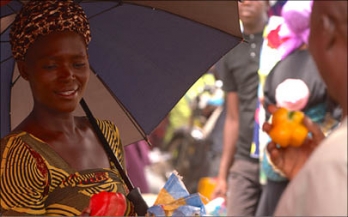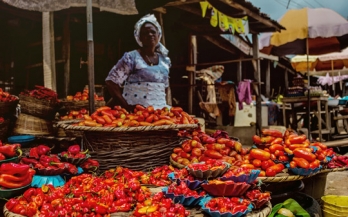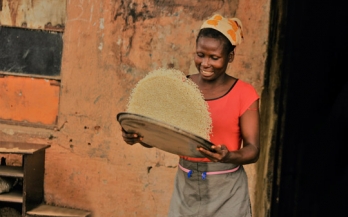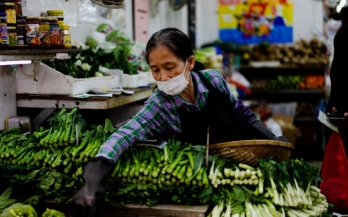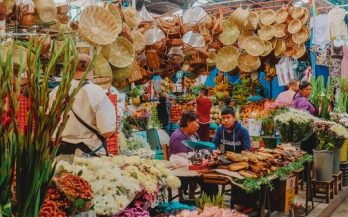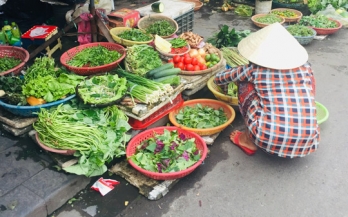- 20/09/2020
EatSafe conducted a systematic search and review process of 87 published studies on the perspectives and practices of consumers and vendors related to food safety in Nigeria.
- 24/08/2020
Lack of diversity in many people’s diets means that more than two billion people globally are deficient in at least one micronutrient, which has a transversal impact on individuals, communities, and nations. It is within this context that GAIN’s Large Scale Food Fortification (LSFF) portfolio of projects, which operate both at national and global levels, has been deployed, with the aim of increasing micronutrient intakes through the addition of bioavailable micronutrients (vitamins and minerals) to commonly consumed foods.
- 20/07/2020
In low-income countries, poor dietary diversity is driven in large part by the low availability and affordability of nutritious foods like fresh fruits and vegetables, dairy products and other animal sourced foods. In a recent assessment, GAIN determined that small-and medium-sized enterprises (SMEs), or small and mighty enterprises as GAIN likes to call them, produce, process or sell up to 70% of nutritious food sold in low-income markets in Africa.
- 06/07/2020
In 2016, the Global Alliance for Improved Nutrition (GAIN) and its partners spotted a gap in postharvest loss interventions targeted to a) nutritious foods and b) working in the supply chain beyond the farm. The Postharvest Loss Alliance for Nutrition (PLAN) was launched in Nigeria.
- 24/06/2020
In Nigeria, 40–50% of fresh fruits and vegetables are lost during crating, transportation, storage and processing. In the tomato sector, for instance, it is estimated that more than 40% of tomato production does not reach consumers. One of the main reasons for this massive waste is the lack of a temperature-controlled supply chain— known as cold chain which prevents fresh foods from spoiling between farm and market.
- 13/06/2020
Food fortification is implemented to increase intakes of specific nutrients in the diet, but contributions of fortified foods to nutrient intakes are rarely quantified.
- 10/05/2020
These document series summarise some rapid assessments undertaken by the Global Alliance for Improved Nutrition (GAIN) to understand early impacts of the COVID-19 coronavirus pandemic on food systems in a set of low- and middle-income countries where GAIN works (Bangladesh, India, Pakistan, Indonesia, Mozambique, Ethiopia, Kenya, Tanzania, Rwanda, and Nigeria).
- 09/05/2020
These document series summarise some rapid assessments undertaken by the Global Alliance for Improved Nutrition (GAIN) to understand early impacts of the COVID-19 coronavirus pandemic on food systems in a set of low- and middle-income countries where GAIN works (Bangladesh, India, Pakistan, Indonesia, Mozambique, Ethiopia, Kenya, Tanzania, Rwanda, and Nigeria).
- 08/05/2020
These document series summarise some rapid assessments undertaken by the Global Alliance for Improved Nutrition (GAIN) to understand early impacts of the COVID-19 coronavirus pandemic on food systems in a set of low- and middle-income countries where GAIN works (Bangladesh, India, Pakistan, Indonesia, Mozambique, Ethiopia, Kenya, Tanzania, Rwanda, and Nigeria).
- 07/04/2020
The SUN Business Network (SBN) / Global Alliance for Improved Nutrition (GAIN) are conducting a pilot project with the International Food and Beverage Alliance (IFBA) to support the replacement of industrially-produced trans-fatty acids (iTFA) by local companies in Nigeria and Pakistan.
